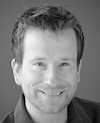|
It
is important to emphasise the severe trauma that a heavy-handed introduction to
Darwinian theory can cause some religious believers. In a single conceptual
leap the world can be transformed from one in which there are clear evidences
of divine care to one in which God is superfluous. As philosophical theologian
Keith Ward helpfully reminds us: “for most theists, God must be causally
effective.” If God’s causal efficacy within biology can be questioned - where evidence was
thought to be the strongest - then it would seem prudent for apologists to
pause before simply redeploying the same argument with different supporting
data. While Darwin’s specific claims about his theory of natural selection were
tightly circumscribed, its ability to topple so strong an argument for theism
has been taken to justify a much stronger claim: that all arguments for theism
are likely to fail. In reality, Darwin’s theory can directly challenge only a
small number of the arguments for theism, but for many the defeat of the
argument from design tipped the balance in favour of the competing philosophy
of scientific naturalism. Oxford zoologist Richard Dawkins has famously noted
that while it had always been possible to reject theology, “Darwin made it
possible to be an intellectually fulfilled atheist.” If God’s causal efficacy within biology can be questioned - where evidence was
thought to be the strongest - then it would seem prudent for apologists to
pause before simply redeploying the same argument with different supporting
data. While Darwin’s specific claims about his theory of natural selection were
tightly circumscribed, its ability to topple so strong an argument for theism
has been taken to justify a much stronger claim: that all arguments for theism
are likely to fail. In reality, Darwin’s theory can directly challenge only a
small number of the arguments for theism, but for many the defeat of the
argument from design tipped the balance in favour of the competing philosophy
of scientific naturalism. Oxford zoologist Richard Dawkins has famously noted
that while it had always been possible to reject theology, “Darwin made it
possible to be an intellectually fulfilled atheist.”
While
religious language used to seem appropriate when describing the more profound
aspects of our lives, science has investigated both the mysterious and the
mundane and explained the former in terms of the latter. Dawkins for one has
become convinced that “our own existence once presented the greatest of all
mysteries, but ... is a mystery no longer because it is solved.” Flush
with success, might the sciences not go on to resolve all mysteries? The
expanding field of evolutionary biology has indeed gone on to unravel mysteries
at least as ponderous as the origin of species. One of note is the
aforementioned ‘miracle’ of childbirth, and the intricacies of biological
development in general. Here was another instance where intuition proved
unreliable. Science showed that there was no need to appeal to a mysterious
‘life force’ that differentiated living matter from the nonliving. The
astonishing micro-world of genes, amino acids and proteins could achieve the
same result through an accumulation of numerous mechanical processes, all of
which were in turn potentially explained by natural selection. The almost
unbounded explanatory power of natural selection has led Dennett to refer to it
as ‘Darwin’s Dangerous Idea.’ For him, the unleashing of this idea has had the
following cultural impact: “science has won and religion lost.” Flush
with success, might the sciences not go on to resolve all mysteries? The
expanding field of evolutionary biology has indeed gone on to unravel mysteries
at least as ponderous as the origin of species. One of note is the
aforementioned ‘miracle’ of childbirth, and the intricacies of biological
development in general. Here was another instance where intuition proved
unreliable. Science showed that there was no need to appeal to a mysterious
‘life force’ that differentiated living matter from the nonliving. The
astonishing micro-world of genes, amino acids and proteins could achieve the
same result through an accumulation of numerous mechanical processes, all of
which were in turn potentially explained by natural selection. The almost
unbounded explanatory power of natural selection has led Dennett to refer to it
as ‘Darwin’s Dangerous Idea.’ For him, the unleashing of this idea has had the
following cultural impact: “science has won and religion lost.”
Printer-friendly
| Feedback | Contributed by: Adrian Wyard
|





